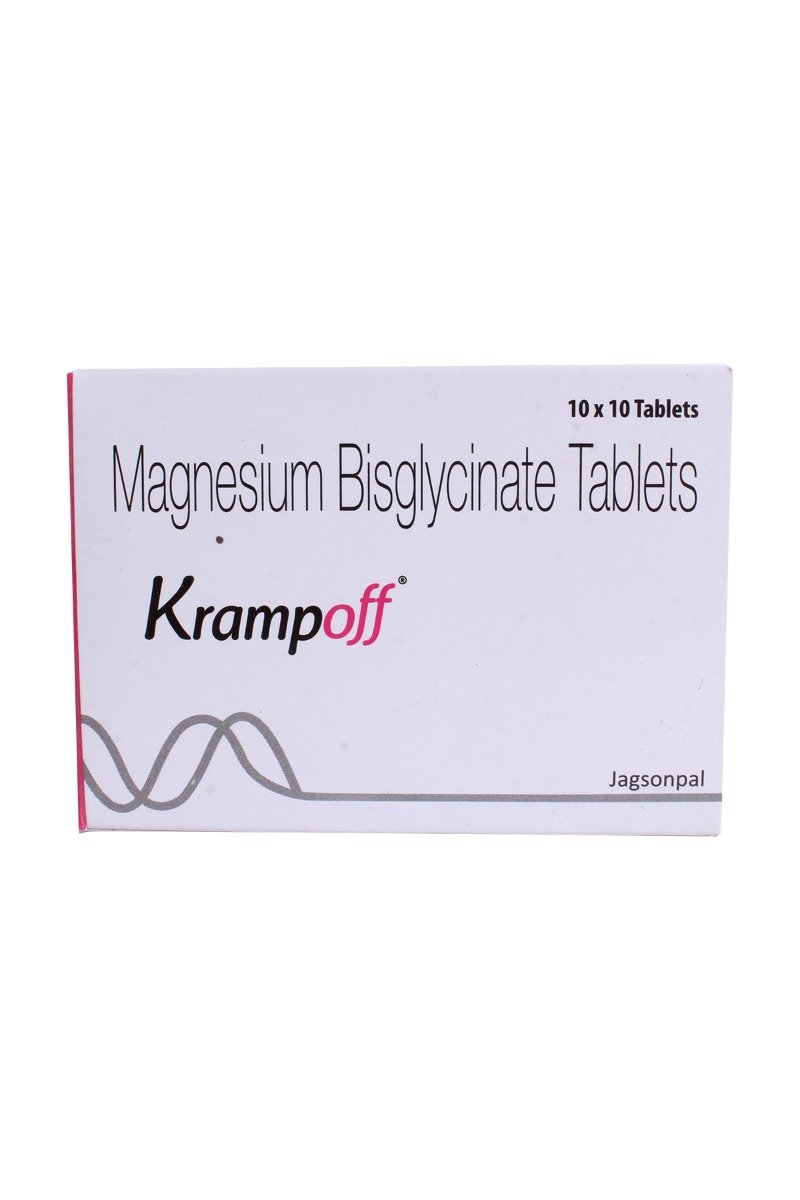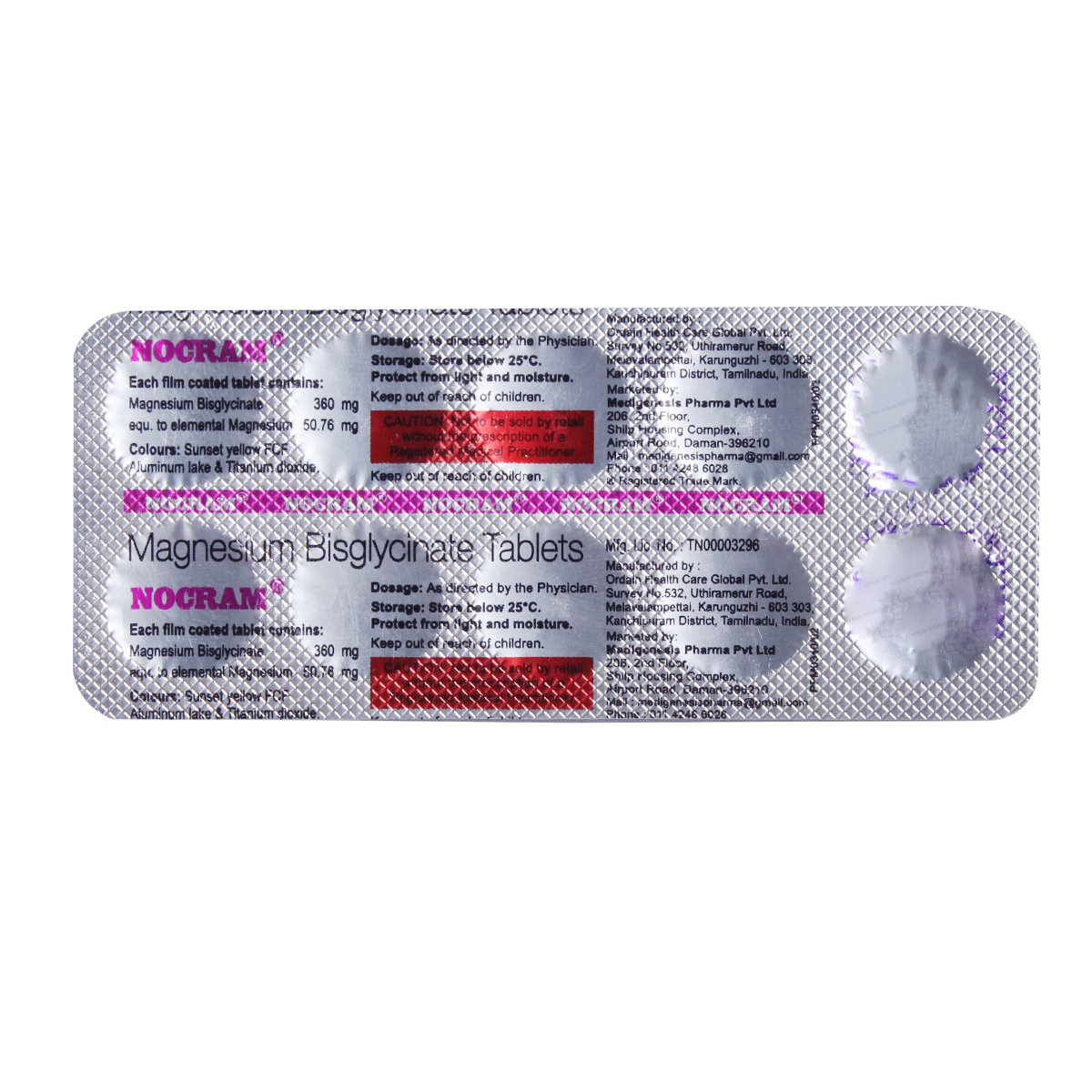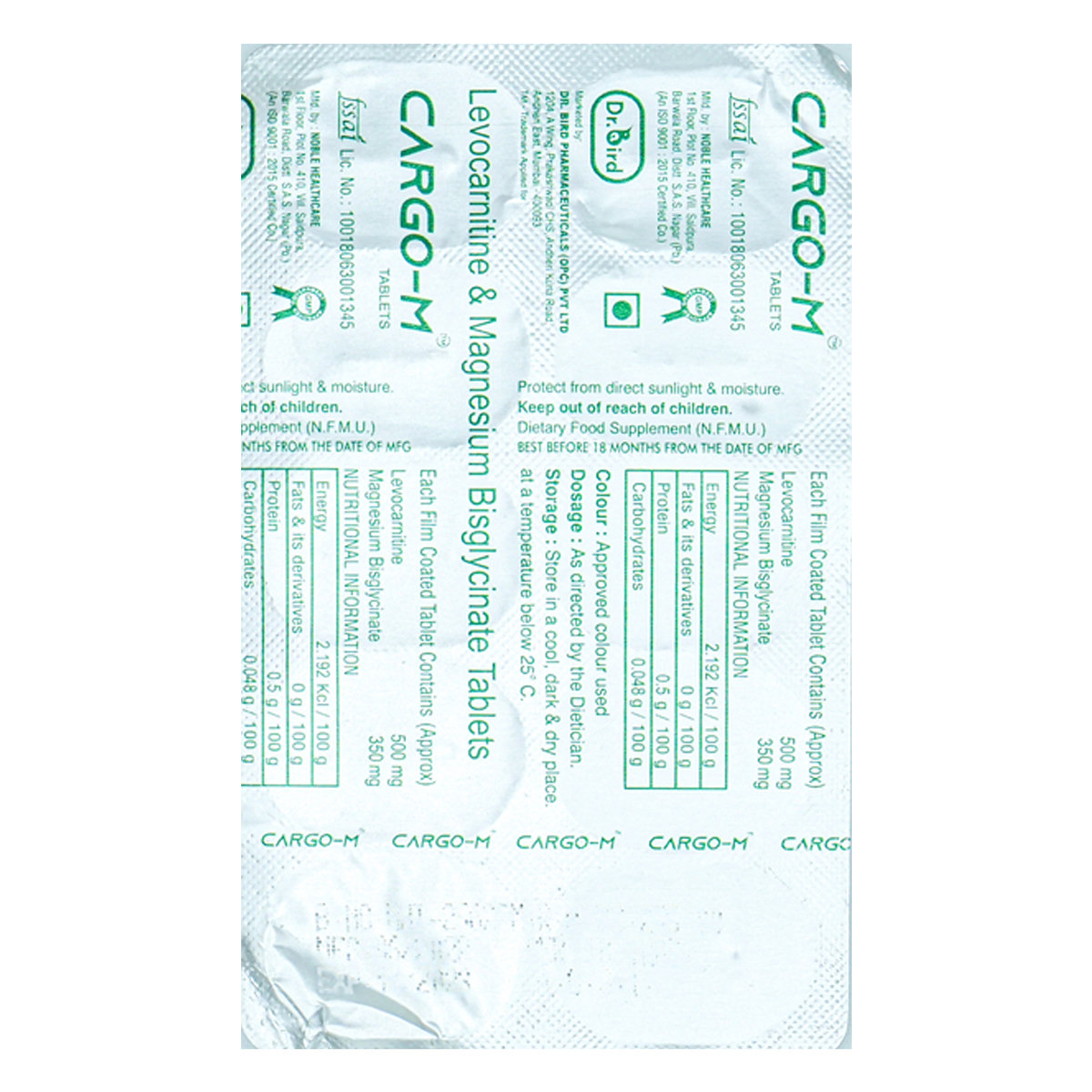Magnesium Bisglycinate
About Magnesium Bisglycinate
Magnesium Bisglycinate is a mineral supplement primarily used to treat nutritional deficiencies. It reduces pregnancy-induced leg cramps and also eases menstrual cramps. It prevents and controls seizures (fits) in preeclampsia and eclampsia, serious complications in pregnancy that occur due to high blood pressure. Magnesium Bisglycinate is also used to treat acute hypomagnesaemia, characterized by abnormally low magnesium levels in the blood.
Magnesium Bisglycinate contains Magnesium bisglycinate. It is a mineral supplement and an electrolyte. It helps lower prostaglandins (inflammation-causing substances) and reduces menstrual cramps. Magnesium deficiency is related to the muscle relaxation process; hence its supplementation regulates muscular contractions and avoids cramping during pregnancy. It is also involved in bone formation. It is used to relieve constipation with its laxative properties. It further prevents and controls seizures by blocking neuromuscular transmission (the transfer of nerve impulses to the heart).
You are advised to take Magnesium Bisglycinate for as long as your doctor has prescribed it, depending on your medical condition. Common side effects of Magnesium Bisglycinate include stomach upset, nausea, and diarrhoea. Most of these side effects do not require medical attention and will resolve gradually over time. However, if these side effects persist for a longer time, please seek medical advice.
Let your doctor know if you use any prescription and non-prescription medications, including other vitamins, before starting Magnesium Bisglycinate. Please do not skip or stop taking Magnesium Bisglycinate midway without consulting your doctor. Let your doctor know if you are pregnant or breastfeeding before taking Magnesium Bisglycinate. It is not recommended to consume alcohol along with Magnesium Bisglycinate. Magnesium Bisglycinate is not recommended in children without a doctor's advice.
Uses of Magnesium Bisglycinate
Medicinal Benefits
Magnesium Bisglycinate contains Magnesium bisglycinate. It is a mineral supplement that regulates muscular contractions and avoids cramping during pregnancy. It helps lower prostaglandins (inflammation-causing substances) and reduces menstrual cramps. It prevents and controls seizures (fits) in preeclampsia and eclampsia, serious complications in pregnancy that occur due to high blood pressure. Magnesium Bisglycinate is also used to treat abnormally low magnesium levels in the blood. It is also used to relieve constipation with its laxative properties. Magnesium aids in the normal functioning of cells, nerves, muscles, bones, and the heart.
Directions for Use
Storage
Side Effects of Magnesium Bisglycinate
- Stomach upset
- Nausea
- Diarrhoea
Drug Warnings
Inform your doctor if you have a medical history of liver/kidney/heart diseases, alcohol dependence, phenylketonuria (increased levels of an amino acid called phenylalanine), and myasthenia gravis (muscle weakness) before starting Magnesium Bisglycinate. Please consult your doctor if you are pregnant or planning to conceive before taking Magnesium Bisglycinate. It is unknown if Magnesium Bisglycinate is released into breast milk; hence please inform your doctor if you are a breastfeeding mother before starting Magnesium Bisglycinate. There is limited data on how Magnesium Bisglycinate affects alcohol intake or your driving ability; hence it is advised to consult your doctor if you have any concerns. Magnesium Bisglycinate should not be given to children unless a doctor has prescribed it.
Drug Interactions
Drug-Drug Interaction: Magnesium Bisglycinate may interact with antacids, heart-related medicines (digoxin), antibiotics (doxycycline, minocycline, tetracycline, ciprofloxacin, and levofloxacin), thyroid medication (levothyroxine), and osteoporosis medicine (alendronate).
Drug-Food Interaction: Avoid the intake of alcohol while using Magnesium Bisglycinate to prevent any side effects.
Drug-Disease Interaction: Use Magnesium Bisglycinate cautiously under medical guidance during conditions like myasthenia gravis, liver/kidney/heart diseases, diabetes, alcohol dependence, and phenylketonuria.
Drug-Drug Interactions Checker List:
Safety Advice

Alcohol
cautionAvoid taking alcohol while using Magnesium Bisglycinate since it may interact and worsen the side effects.

Pregnancy
cautionMagnesium Bisglycinate should be used during pregnancy only when recommended by a doctor. Please consult your doctor before taking Magnesium Bisglycinate if you are pregnant or planning to conceive.

Breast Feeding
cautionMagnesium Bisglycinate should be used during breastfeeding only when recommended by a doctor. Please consult your doctor before taking Magnesium Bisglycinate if you are a nursing mother.

Driving
cautionMagnesium Bisglycinate usually does not interfere with your driving abilities. However, please drive and operate machinery only when you are mentally alert and focused.

Liver
cautionMagnesium Bisglycinate should be used with caution in patients with liver impairment/liver disease. Please consult your doctor for more information.

Kidney
cautionMagnesium Bisglycinate should be used with caution in patients with kidney impairment/kidney disease. Please consult your doctor for more information.

Children
cautionPlease consult your doctor before giving Magnesium Bisglycinate to children. Your doctor will decide if Magnesium Bisglycinate can be given to your child or not.
Habit Forming
Diet & Lifestyle Advise
- Manage stress, eat healthily, drink plenty of water, exercise regularly, and get plenty of sleep.
- Include Vitamin D rich foods like fatty fish, mackerel, tuna, dairy products, orange juice, soy milk, cereals, beef liver, cheese, and egg yolks in your diet.
- For leg cramps, stretch your calf muscles by squatting down to the floor (hold on for safety).
- Massage your feet and apply a hot pack.
- Choosing proper footwear may also prevent cramps and provides comfort and support.
Special Advise
- Your doctor may advise you to get regular blood tests to test the amount of magnesium in your blood.
- Monitor your blood pressure and sugar levels regularly while using Magnesium Bisglycinate.
Patients Concern
Disease/Condition Glossary
Nutritional deficiency: A nutritional deficiency occurs when the body does not absorb or get enough nutrients from food. This condition occurs when a person's nutrient intake is lesser than the body's recommended requirement. It can lead to various health problems like a weak immune system, skin problems, digestion problems, defective bone growth, and neurological diseases.
Pregnancy-induced leg cramps: Cramps are a sudden and sharp pain due to the painful, involuntary contraction of a muscle in the calf or feet. Cramps in pregnancy result from carrying extra weight, metabolic changes, and nutritional deficiencies. Stretching and massaging the calf muscles, moderate exercises, and nutritional supplements that include magnesium help treat these cramps.
Hypomagnesaemia: It is a condition that occurs when a person has abnormally low magnesium levels. This occurs when a person does not get enough magnesium in their diet or he/she is unable to absorb magnesium properly. Symptoms include nausea, vomiting, weakness, personality changes, tremor, fatigue, seizures, irregular heartbeat, and high blood pressure.
FAQs
Magnesium Bisglycinate contains Magnesium bisglycinate. It works by replenishing the low magnesium levels in the body and thus treats various associated conditions like pregnancy-induced cramps, menstrual cramps, and hypomagnesaemia. It also aids in the normal functioning of cells, nerves, muscles, bones, and the heart.
Please do not stop taking Magnesium Bisglycinate without consulting your doctor on your own. Continue taking Magnesium Bisglycinate for as long as your doctor has prescribed it. Do not be reluctant to speak with your doctor if you experience any difficulty while taking Magnesium Bisglycinate.
Inform your doctor in advance before taking Magnesium Bisglycinate if you have liver/kidney/heart diseases, alcohol dependence, phenylketonuria (increased phenylalanine levels in the blood), and diabetes.
Take the missed dose as soon as possible. However, if it is time for the next dose, skip the missed dose and go back to your regular dosing schedule. Do not double the dose.







